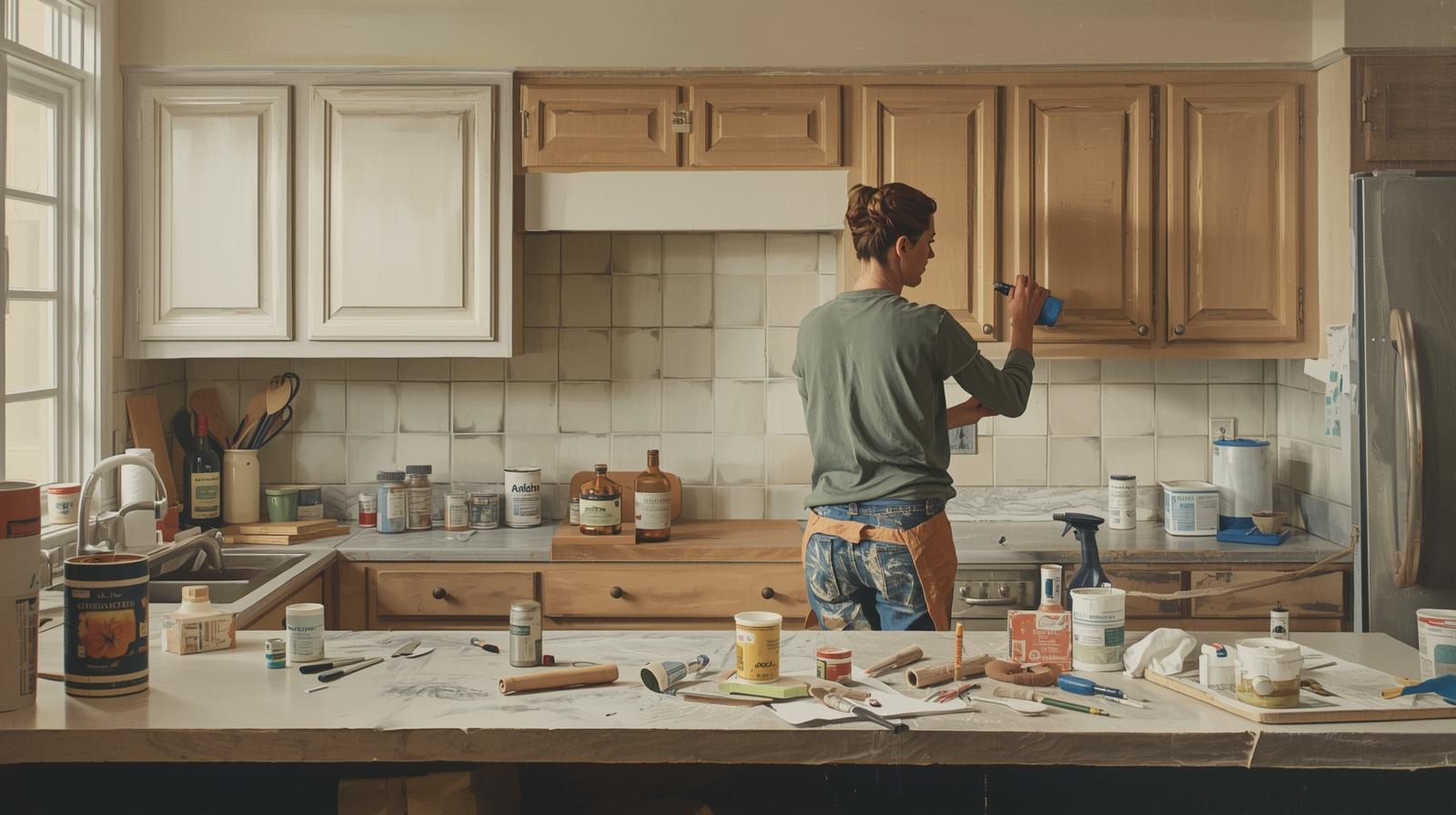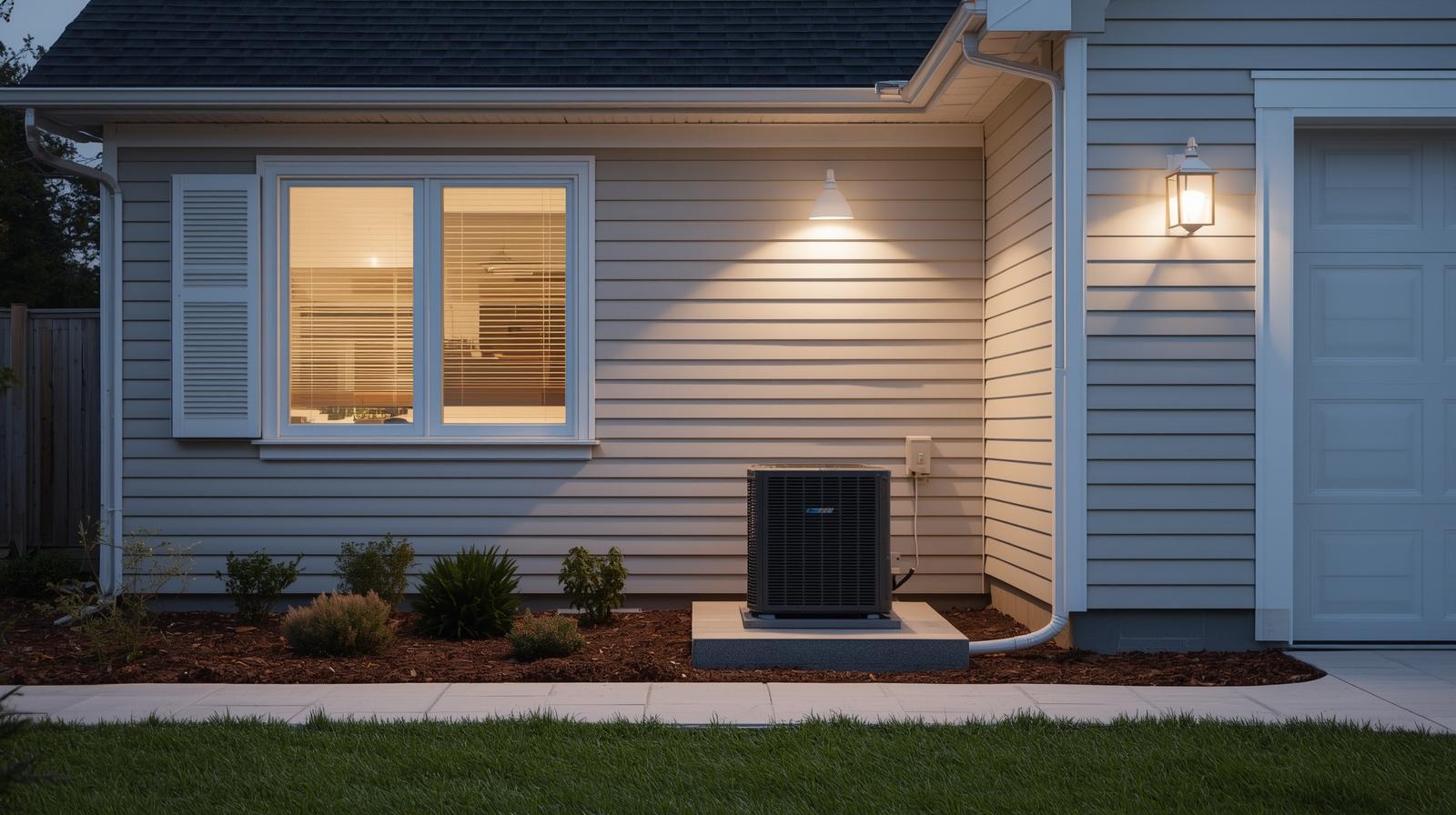Advantages and Disadvantages of Vinyl Flooring

When it comes to choosing flooring for your home, vinyl is oftentimes a popular option, offering homeowners an affordable and versatile alternative to traditional materials like hardwood, tile, or carpet. But is it right for you? Speaking from experience, the answer could vary depending on a ton of factors. When I bought my first place, I was overwhelmed by flooring choices and wasn’t sure where to begin. After what felt like weeks and weeks of research, I found that for my situation at the time, vinyl flooring made the most sense to me. Over the years, I came to better understand what I loved and didn’t love, about vinyl flooring. Before making your decision, here are some things to consider regarding the benefits and disadvantages of this type of material.
What Is Vinyl Flooring?
Maybe you’re new to the world of flooring options like I was, before we get into the pros and cons, let’s talk about what vinyl flooring is at its core. Vinyl flooring is a synthetic material composed of several layers: one core layer is for stability, the next is an image layer that displays the design, and the third is a top wear layer for protection. It comes in various types, such as luxury vinyl planks (LVP), luxury vinyl tiles (LVT), and sheet vinyl, with each offering a wide range of designs and styles to suit different preferences and needs.
Advantages of Vinyl Flooring
- Durability: This is a big one. Have kids? Pets? Depending on the type of vinyl flooring you’re considering, it may be a fit for you. In fact, one of the primary benefits of vinyl flooring is its durability. It’s built to withstand heavy foot traffic, making it pretty perfect for high-traffic areas like kitchens, bathrooms, and entryways. Vinyl is also water-resistant, which is great for spaces prone to moisture, and it is scratch-resistant, perfect if you have a pet and worry about claw marks.
- Comfort: Vinyl flooring offers a softer, more comfortable surface compared to hard materials like tile or concrete. It also has insulation properties, which help keep your floors warm in colder months, and can provide some soundproofing qualities, reducing noise transfer between rooms or levels. Perfect if you’re in an apartment or condo situation and don’t want your neighbors to hear you walking all over the place.
- Maintenance: Another big advantage of vinyl flooring is its ease of maintenance. It’s simple to clean, and really only requires sweeping, vacuuming, or damp mopping to keep it looking its best. Compared to other flooring materials that may need waxing, polishing, or special treatments, vinyl is relatively low maintenance.
- Installation: Vinyl flooring is often DIY-friendly, with many options available in click-lock or peel-and-stick formats that can be installed without professional help. However, for more complex installations or to ensure the best results, you could always reach out to a professional.
- Cost: Compared to other flooring materials like hardwood, stone, or ceramic tile, vinyl is generally more affordable, making it a cost-effective choice for those working with a limited budget. The price of vinyl flooring varies depending on factors like quality, thickness, and design, but overall, it tends to be less expensive than many other options.
- Design: Vinyl flooring comes in a wide variety of styles, colors, and patterns, making it perfect to find an option that suits your personal taste.
While all of these things sound great, and you may think I’m biased since I have used it in the past, it is just as important to recognize the disadvantages of using vinyl flooring in your home.
Disadvantages of Vinyl Flooring
- Susceptibility to Damage: While vinyl flooring is durable, it is not indestructible. It can be damaged by heavy loads, like furniture or appliances, and sharp objects can puncture or gouge the surface. Once damaged, it is extremely difficult to repair and almost always needs a full replacement of the affected area.
- Environmental Impact: Vinyl flooring is made from synthetic materials, primarily polyvinyl chloride (PVC), which is not biodegradable and can release volatile organic compounds (VOCs) into the air. Because of this, vinyl is not considered a "green" or eco-friendly flooring option. However, there are options out there that claim to be eco-friendly.
- Maintenance: Although vinyl flooring is easy to clean, it cannot be refinished like hardwood or sanded and resealed like some other materials. If the surface becomes severely worn or damaged, the only option is to replace the affected planks or tiles.
- Aesthetics: While vinyl flooring has come a very long way in terms of realistic textures and designs, it may not fully replicate the look and feel of natural materials like wood, stone, or ceramic tile. And, over time, vinyl flooring can fade, particularly if exposed to direct sunlight, and unlike other materials, you cannot change the color or finish once it is installed.
- Health Concerns: Some people have raised concerns about the potential health impacts of vinyl flooring, particularly regarding the presence of toxic chemicals like phthalates and formaldehyde. However, many manufacturers now offer low-VOC and phthalate-free options to address these concerns.
Considerations When Choosing Vinyl Flooring
Subfloor Requirements
Vinyl flooring requires a smooth, flat, and dry subfloor for proper installation. Any imperfections or moisture issues should be addressed before installation to prevent problems down the road.
Thickness and Quality
The thickness and quality of vinyl flooring can vary significantly, impacting its durability, comfort, and overall performance. Generally, thicker, higher-quality vinyl will offer better durability and feel more comfortable underfoot.
Sunlight Exposure
If your space receives direct sunlight, it's important to choose a vinyl flooring product with good UV resistance to prevent fading or discoloration over time.
Cost
While vinyl flooring is generally more affordable than other options, consider the long-term costs, including installation, maintenance, and potential replacement down the line.
Environmental and Health Concerns
If you have concerns about VOC emissions or the environmental impact of vinyl flooring, look for products that are certified low-VOC or phthalate-free, and consider the recyclability of the material.
Maintenance and Care
- Routine Cleaning: To keep your vinyl flooring looking its best, regular vacuuming, sweeping, and damp mopping with a mild cleaner are recommended.
- Avoidance of Certain Products: Avoid using wax, varnish, or steam cleaners on your vinyl flooring. Those methods can damage the surface and cause discoloration.
- Protection Measures: To prevent scratches and dents, use rugs or mats at entryways, and place furniture pads under heavy items like tables, chairs, and appliances.
Design Options
Vinyl flooring offers a wide range of design options, from classic wood and stone looks to more modern and creative patterns and colors. Many products also offer customization options, which is a nice way to create a unique look for your space.
When choosing a design, consider factors like the overall style of your home, the quality and realism of the texture or pattern, and the cost of the product.
Installation
Vinyl flooring can often be installed as a DIY project, but for more complex layouts or to help ensure the best results you can reach out to to a professional.
Costs and Process
The cost of installation will depend on factors like the size of your space, the complexity of the layout, and the type of vinyl flooring you choose. The installation process typically involves preparing the subfloor, laying out the planks or tiles, cutting and fitting the pieces, and securing them in place.
Lifespan and Durability
The durability and lifespan of your vinyl flooring will depend on several factors, including the quality of the product, the thickness of the wear layer, the level of foot traffic in the space, and how well you maintain and care for the flooring over time.
So, Is It Right For You?
Vinyl flooring offers a range of benefits, including durability, affordability, and versatile design options, making it an attractive choice for many homeowners. However, it's important to consider the potential drawbacks, like environmental impact, susceptibility to damage, and health concerns, when deciding if vinyl is the right choice for your flooring remodel.
Before making a final decision, take the time to research different products, consult with professionals, and consider your specific needs and preferences. With careful consideration and proper installation and maintenance, vinyl flooring can provide a beautiful, durable, and affordable surface for your home.

Candice is an experienced writer and digital marketer with nearly a decade of experience. A fantastic human who always is always willing to get knee-deep into the work and with a willingness to learn. She has a background in video which comes in handy for production.
Recent articles
Unlocking equity is hard,
we've got your back.
See what's possible, it's your real estate.
Discuss homeThe future
starts at home.
While there is an abundance of evidence that supports that renovated turnkey homes sell faster and for more, Revive, nor the Contractor, can guarantee a specific as-is or after renovation value or the exact time that it would take to get a renovated home sold. Further, Revive cannot provide a guarantee that the real estate market will not experience fluctuations or a decrease during the renovation or sales period.









